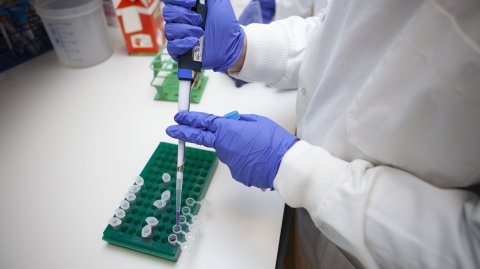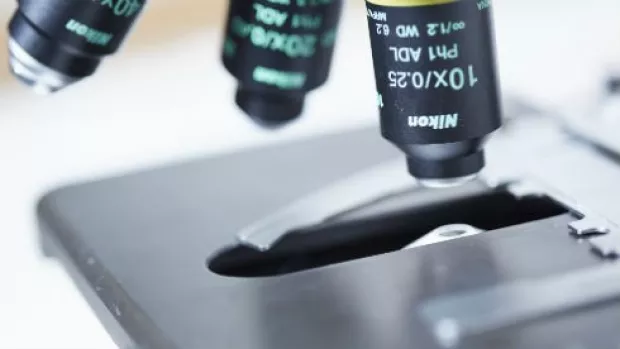A strategy to promote oligodendrocyte regeneration and remyelination

- Lead researcher:
- Prof. Arthur Butt
- Based at:
- University of Portsmouth
- MS Society funding:
- £198,196
- Status:
- Complete
About the project
Myelin is the fatty substance that surrounds nerves to protect them from damage. In MS, the myelin is attacked by immune cells leaving the nerve exposed and vulnerable. Damage to the nerve is a key factor in the transition to progressive MS. The body is capable of repairing myelin but this is dependent on myelin making cells called oligodendrocytes. In MS, these oligodendrocytes cannot perform their function as well as they should and eventually this myelin repair process becomes ineffective.
Researchers are on the hunt for growth and survival factors that protect against oligodendrocyte damage and promote their regeneration. This project aims to look at one such molecule called GSK3 which has been shown to promote oligodendrocyte regeneration. The researchers behind this project want to unpick the exact pathway by which GSK3 works and determine whether this could be targeted with a drug to stimulate myelin repair.
How will it help people with MS?
There are currently no treatments available to repair myelin. Gaining a better understanding of molecules and pathways in the body that are involved in myelin repair will bring researchers closer to finding treatments to target these. Finding effective myelin repair treatments provides a real chance to slow the onset of disability in MS.
The difference you can make
If we are going to find a myelin repair treatment we need to keep funding the research searching for the targets that will do this. You can contribute to this effort and bring us closer to finding a way to slow progression.




